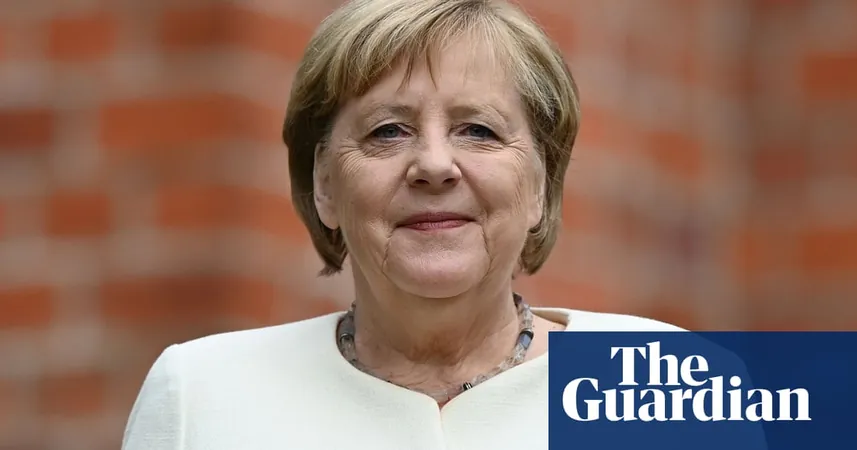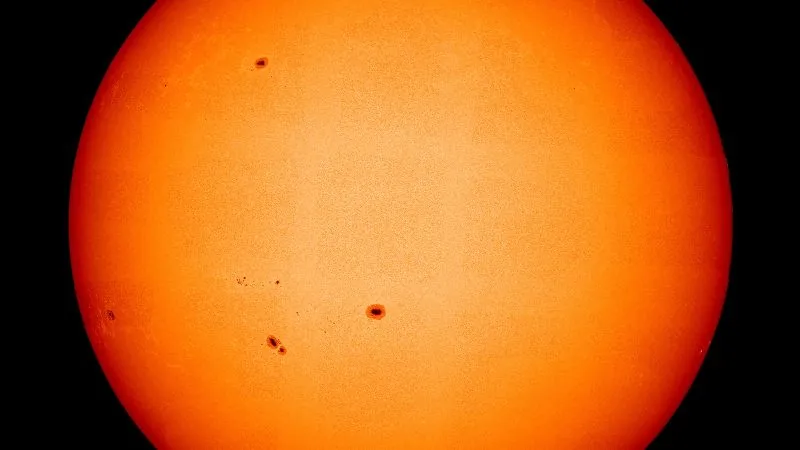
Angela Merkel Reflects on Her Missteps with Donald Trump in New Memoir
2024-11-21
Author: Ting
Introduction
In her eagerly anticipated memoir titled Freedom, Angela Merkel reveals that her initial approach to Donald Trump was a major miscalculation. The former German chancellor admits that she mistakenly regarded Trump as “completely normal” during their first encounter in the Oval Office in 2017. However, she soon realized that his behavior was anything but typical.
Public Encounter
Merkel recounts a revealing moment when Trump publicly refused to shake her hand before cameras, a gesture she later recognized as an intentional humiliation. "Instead of stoically bearing it, I whispered to him that we should shake hands again,” she reflects, adding that she immediately regretted her words. “How could I forget that Trump knew precisely what he was doing… He wanted to give people something to talk about with his behavior, while I acted as though I were having a conversation with someone completely normal,” she writes.
Memoir Insights
This memoir, which has been in the works since she left office in 2021, spans over 700 pages and delves into her upbringing in East Germany, her long tenure as chancellor from 2005 to 2021, and her development into a prominent figure on the global stage. Often called the “queen of Europe,” Merkel navigated the complex dynamics of international relations, and her book offers a candid perspective on her leadership style.
Characterization of Trump
Reflecting on her interactions with Trump, Merkel characterizes him as “emotional” and often driven by personal grievances, contrasting sharply with her data-driven and pragmatic approach. “It seemed that his main aim was to make the person he was talking to feel guilty… at the same time, I had the impression that he also wanted the person he was speaking with to like him,” she noted.
Trump’s Fascination with Autocrats
Merkel observed that rather than solidifying alliances with traditional partners, Trump appeared captivated by autocratic leaders like Vladimir Putin. “Trump was apparently fascinated with the Russian president,” she writes, noting that those with dictatorial tendencies seemed to have a profound impact on him.
Uphill Battle Against Trump's Worldview
Hers was an uphill battle against Trump's zero-sum worldview, which she describes as viewing international relations through the lens of real estate development – where one country’s gain meant another’s loss. This perspective became particularly evident when Trump announced the U.S. withdrawal from the Paris climate agreement shortly after their first meeting, a move that deeply concerned Merkel.
Critiques and Tensions
As she reflects on her experiences, Merkel also touches on Trump’s persistent critiques of her policies, particularly regarding Germany’s immigration stance and NATO defense spending. “They [the Germans] didn’t love me because I said you gotta pay,” Trump remarked at a recent rally, underscoring the tensions that marked their relationship.
Endorsement of Kamala Harris
In an unexpected twist, Merkel offers a late endorsement for Kamala Harris in the upcoming U.S. elections, expressing a wish for her success in the presidential race. “I wish with all my heart that Kamala Harris defeats her competitor and becomes president,” she states, hinting at her hopes for a shift in American leadership.
Critique of Putin and Legacy Reflections
The memoir also critiques Putin, whom Merkel describes as manipulative but not entirely devoid of valid points. Reflecting on his past anti-Western rhetoric, she concedes, “There were some points I did not regard as completely absurd,” particularly concerning Western military interventions.
Looking back at her time in office, Merkel acknowledges the complexity of dealing with Russia and highlights how her strategies may have unintentionally contributed to a dangerous reliance on Russian gas. While still enjoying a positive reputation among many Germans, her legacy faces scrutiny, especially regarding criticisms of her handling of the migrant crisis and the rise of far-right parties in Germany.
Conclusion
As she steps back into the public eye to promote her book, Merkel’s reflections offer a rich, nuanced understanding of her leadership during a transformative era in both Germany and the wider world. Her willingness to candidly assess her interactions with one of the most controversial U.S. presidents in history certainly makes for compelling reading.





 Brasil (PT)
Brasil (PT)
 Canada (EN)
Canada (EN)
 Chile (ES)
Chile (ES)
 España (ES)
España (ES)
 France (FR)
France (FR)
 Hong Kong (EN)
Hong Kong (EN)
 Italia (IT)
Italia (IT)
 日本 (JA)
日本 (JA)
 Magyarország (HU)
Magyarország (HU)
 Norge (NO)
Norge (NO)
 Polska (PL)
Polska (PL)
 Schweiz (DE)
Schweiz (DE)
 Singapore (EN)
Singapore (EN)
 Sverige (SV)
Sverige (SV)
 Suomi (FI)
Suomi (FI)
 Türkiye (TR)
Türkiye (TR)